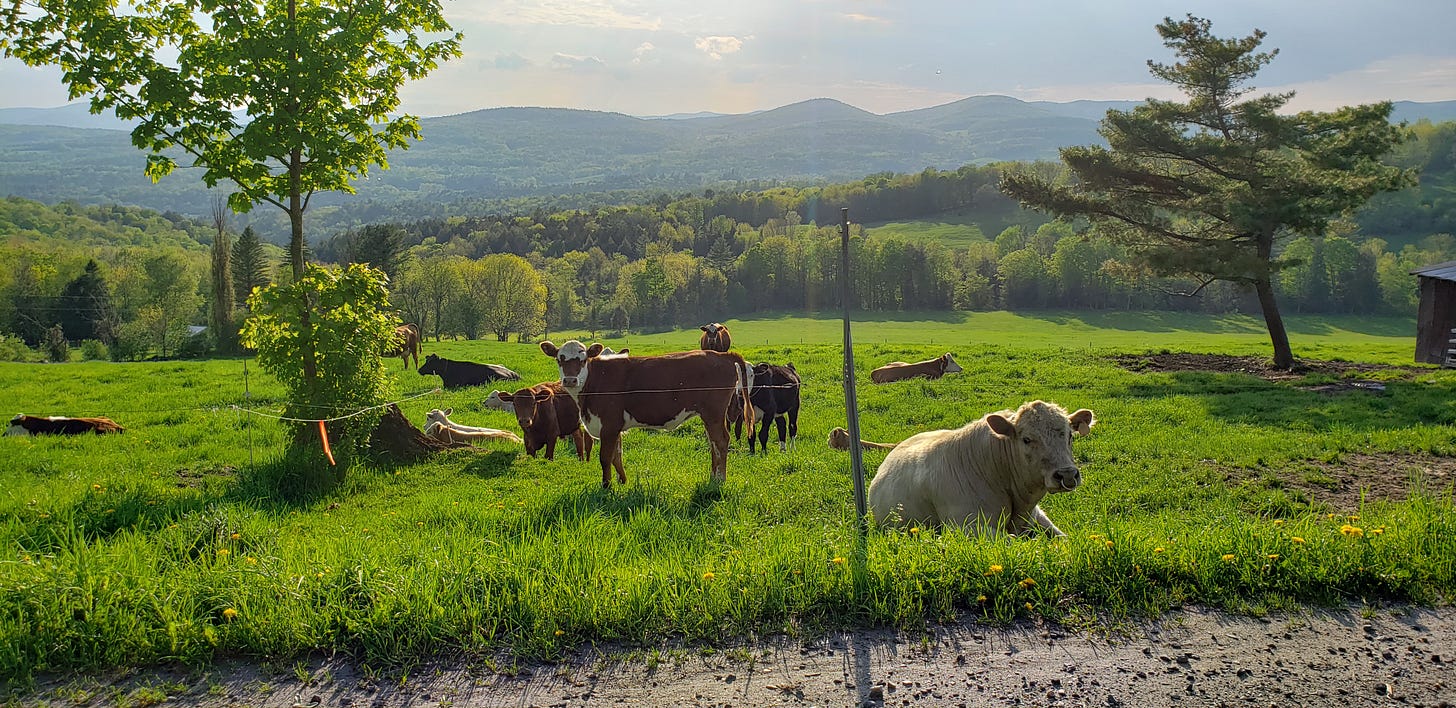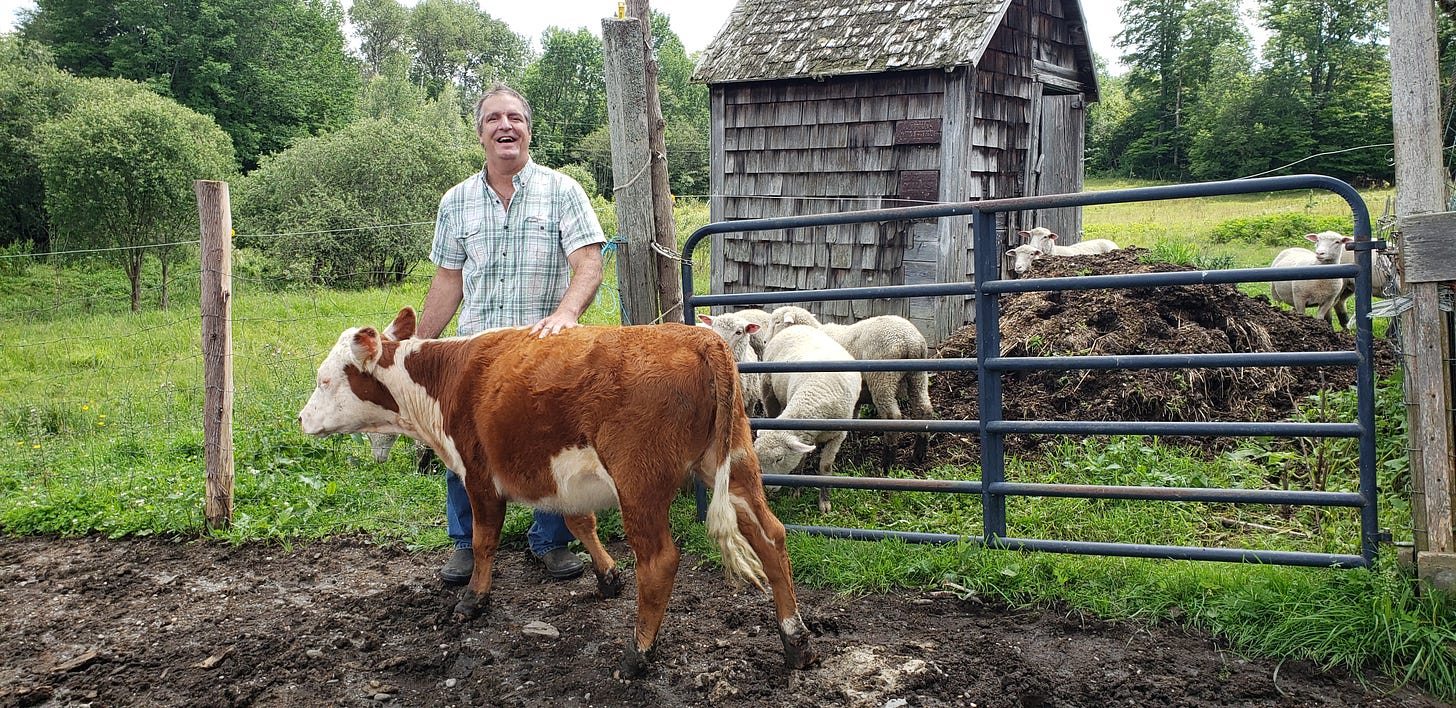There have been numerous iterations of the classic fable of the Country Mouse and City Mouse, but the theme commonly centers on each visiting the other cordially, eliciting contrasts about their respective cultures. America appears to be witnessing a falling out of this historic union. Wealthy City Mice sneer in disdain at rural bumpkins, even while extracting natural resources and wealth for urban consumption, or buying up high-end idyllic country retreats. Instead of hosting their visitors with country fare as in the fairytale, rural natives are hired to do the landscaping and plow the driveway, uninvited to the city. The Country Mice are tiring of this abusive colonization. The urban-rural strain is a visible fault line in America’s Culture Wars, and the relationship is floundering over seemingly irreconcilable differences.
Among the various permutations of the City Mouse and Country Mouse story, most versions recount a visit to the country by the City Mouse, who is unimpressed by the simple country fare. This leads the mice to then seek the plenty of the city, but threatening dogs terrify the Country Mouse to flee. In Aesop’s version, the Country Mouse says “I would rather have a crust with peace and quietness, than all your fine things in the midst of such alarms and frights as these.”
The COVID pandemic saw “alarms and frights” rock the concrete foundations of urban America: hospitals were horror movies of ventilators and overcrowded hallways; grocery stores were swarmed by masked toilet-paper hoarders bouncing into one another with overstuffed carts, frantic consumers in bumper cars. The perceived social benefits of city living inverted for many into a near-claustrophobic prison of vulnerability. Climate change ideologues assert that humanity must compress yet more tightly into efficient urban life, but this turns out to be a precarious bargain.
Wendell Berry has long lamented this drawdown of talent, resources and culture by the migration of rural farmers to urban residency. Mr. Berry does not mince his precisely-chosen words about how extractive and exploitative this economic/cultural shift has been:
A human community, then, if it is to last long, must exert a sort of centripetal force, holding local soil and local memory in place. Practically speaking, human society has no work more important than this. Once we have acknowledged this principle, we can only be alarmed at the extent to which it has been ignored. For although our present society does generate a centripetal force of great power, this is not a local force, but one centered almost exclusively in our great commercial and industrial cities, which have drawn irresistibly into themselves both the products of the countryside and the people and talents of the country communities. (The Work of Local Culture, 1988)
This “giant sucking sound” of wealth from the rural heartlands and hinterlands of America is not heard of in the media or the cities, save an occasional lame lament that “family farms are suffering and isn’t that a shame.” The City Mouse perception that farmers and Country Mice are dull slaves to dirt has become more widespread since Mr. Berry raised his alarm in 1988 (and much earlier). This shift is a cultural shift, as city denizens are mostly themselves rural immigrants to their urban sprawl.
American cities import food and labor from the countryside just like Rome of old, though the capacity to export toxins and waste back onto that nurturing landscape in return payment is far exceeded in America today than in Nero’s time. Wendell Berry graphically personifies this urban tendency as parasitic:
There is, as one assumes there must be, a countervailing or centrifugal force that also operates in our society, but this returns to the countryside not the residue of the land’s growth to refertilize the fields, not the learning and experience of the greater world ready to go to work locally, and not—or not often—even a just monetary compensation. What are returned, instead, are overpriced manufactured goods, pollution in various forms, and garbage. ….The cities, which have imposed this inversion of forces on the country, have been unable to preserve themselves from it. The typical modern city is surrounded by a circle of affluent suburbs, eating its way outward, like ringworm, leaving the so-called inner city desolate, filthy, ugly, and dangerous. (The Work of Local Culture, 1988)
This intergenerational sapping of rural culture is evident in Vermont, where agriculture, especially cow dairying, has generally declined for a century. The “local” culture of Vermont was built on self-reliance and independence, which in turn was entwined with agriculture. But the poverty and deprivations that accompanied the death of dairy persist across the Green Mountain landscape even as more farms disappear
Thirty-five years after Wendell’s 1988 essay, Vermont’s landscape carries the imposed burden of that “inversion of forces on the country” in the form of skyrocketing real estate prices (especially for farmland; especially post-COVID), dependence on tourism, and the storage of mountains of urban garbage.
The Coventry Landfill in Coventry, Vermont has ballooned into a Bog of Eternal Stench. Locals call it “Mount Casella” after its operator and mountainous dimensions. This incongruous stain is striking because it is so disproportionately massive compared to the declining nearby city of Newport. The heights of the rising mountain of refuse overlook thousands of acres of pristine wetlands and the Black River, as well as the international Lake Memphremagog. Mount Casella is partly constructed of out-of-state waste including “construction materials, sludge from sewage treatment plants, asbestos, ash, contaminated soil, medical waste and more.”
Gradually, over decades, Vermont’s remnant of poor ex-farmers and their families and homes have been displaced by mansions and estates, as the colonization and gentrification of this rural hold-out region has worn down the “locals” much as the harsh winters have withered their leaking barns and drooping farmhouses. In their Exodus back to the country, the City mice have decided they too prefer Aesop’s “crust with peace and quietness.” But they are not bringing an agrarian culture back from the cities to Vermont. They are more likely to suburbanize its towns and seek modernity and convenience. Much like that ringworm analogy.
And yet this infectious idea of an illusory progress has tainted many native Vermonters as well, equally beguiled by the dubious goods and perceived plenty of the big city. The conflict unfolding is one not really between people but between worldviews: cultural worldviews.
As Wendell Berry continued in his 1988 alarum:
But the old opposition of country versus city—though still true, and truer than ever economically, for the country is more than ever the colony of the city—is far too simple to explain our problem. For country people more and more live like city people, and so connive in their own ruin. More and more country people, like city people, allow their economic and social standards to be set by television and salesmen and outside experts. Our garbage mingles with New Jersey garbage in our local landfill, and it would be hard to tell which is which.
Vermont dumps almost all of its own garbage into Mount Casella, though it exports some to New Hampshire and New York. Its own consumption of goods–often including unhealthy processed foods, shipped huge distances–is culturally indistinguishable from the flow of garbage trucked out of the cities.
That flow now includes fentanyl and methamphetamine, gang traffic and violent crime. America watches the chaos and deterioration in San Francisco, Los Angeles, Chicago, Portland, Philadelphia and New York City. Is the urban cultural decay not itself the direct consequence of the inversion described by Berry–of a society that founds itself on the urban and extractive rather than the communal and agrarian? Vermont’s young people perishing from fentanyl mingle with the dead of the ghetto, as the scourge of urbanization, cheap energy, and technological excess continues to destroy the rural landscape and culture.
As America’s cities are ravaged by BLM riots, looting flash mobs, rising violent crime, powerful gangs, and homelessness, many are fleeing for the hills, seeking refuge and sanctuary. The solution to the problems of ecological destruction, rural economic decline, and cultural identity are not utopian visions of a grand Green New Deal or WEF GMO wheat kernel. They are to be found at the local level, where local culture still clings to the knowledge of tended soils and self-reliance; of the proper balance between the health of humans and of the place that nurtures them.
Wendell once again: “Lacking an authentic local culture, a place is open to exploitation, and ultimately destruction, from the center.” The Country Mouse must hold his meager remaining rural ground and simple traditions, not against the City Mice (who remain his cousins), but against the ways of the urban-industrial center. Reckless urbanization severs human connection to soil and life, to the detriment of all.
(The author, connected to soil and manure with heifer Molly and some yearling sheep.)
Previously published at Front Porch Republic.









I’m a country mouse. I come away with this piece as sort of romanticizing rural culture. Where I live in the rural Midwest, I’m not so sure how many farmers apply land stewardship principles like we want to romanticize they do. People can be isolated, insular, lacking critical thinking skills, and the furthest thing from regenerative. The upshot for me is - the decay is everywhere.
Wow I sound like a negative Nellie. And I suppose I am to some extent. My work right now is to focus on the tiny, micro-good we are trying to do here on our tiny plot of earth. It’s hard work. It’s not glamorous. It’s not glorified and by golly it’s not even economically sustainable! But we get up and milk anyway.
This was sad for me to read because it is so relevant to what has happened to my home state! We need to take back Vermont but I fear it will never be what it once was before taken over by city mice.